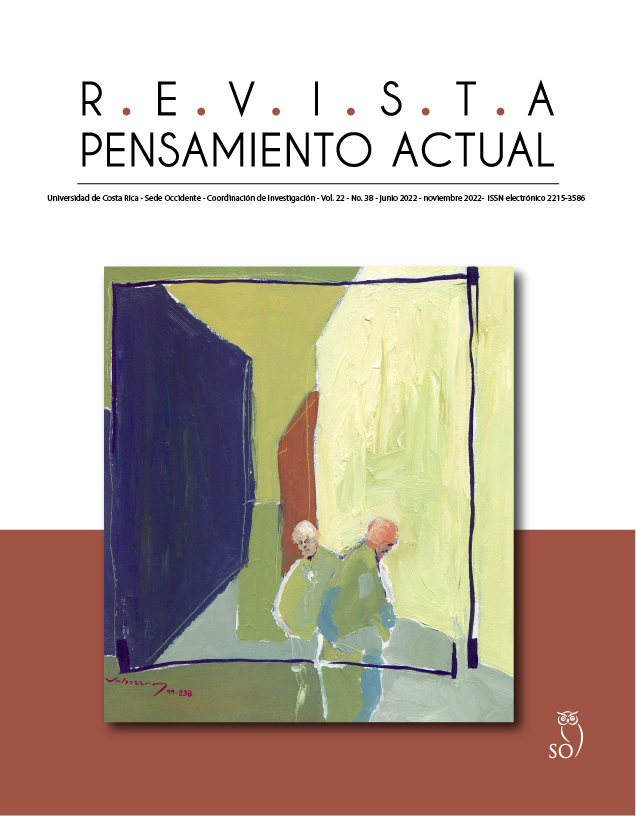Abstract
The pandemic generated by COVID-19 and confinement as a preventive measure for the disease, have caused repercussions on economic activities, being unfavorable for sectors such as tourism. The objective of this research is to analyze the impacts of COVID-19 in the hotel sector of Cancun from the work experiences of the workers. For this, a qualitative approach and phenomenological design methodology were used. The in-depth interview was used as a data collection technique, with which twenty oral experiences were accessed. The results show that workers have been in disturbing situations since the outbreak of the disease, generating an imbalance in their work and social life. Psychological problems are observed both due to the pandemic and unemployment. There is also a greater presence of the use of technologies to continue participating in work activities; however, there is fragility for operational employees due to not being able to telework. As in other businesses, working hours have been reduced, leaving salary and employment at risk. With these experiences, there is evidence of a limited hotel sector in strategies that support the workforce, placing workers in a vulnerable situation.
References
Alon, T., Doepke, M., Olmstead-Rumsey, J. & Tertilt, M.(2020a). The Impact of COVID-19 on Gender Equality. Discussion Paper, 163, 1-38, https:// doi.org/10.3386/w26947
Alon, T., Doepke, M., Olmstead-Rumsey, J. y Tertilt, M. (2020b). The impact of the coronavirus pandemic on gender equality. Covid Economics Vetted and Real-Time Papers, (4), 62-85. https://voxeu.org/article/impact-
coronavirus-pandemic-gender-equality
Alzua, M. & Gosis, P. (2020). Impacto social y económico de la COVID-19 y opciones políticas en Argentina. Serie de documentos de política pública, PNUD-América Latina y el Caribe, 9(6), 1-27. https://www.latinamerica. undp.org/content/rblac/es/home/library/crisis_prevention_and_recovery/social-and-economic-impact-of-covid-19-and-policy-options-in-arg.html
Baruch, Y. (2000). Teleworking: benefits and pitfalls as perceived by professionals and managers. New Technology, Work and Employment, 15(1), 34–49. https://doi.org/10.1111/1468- 005x.00063
Bericat, E. y Acosta, M. J. (2020). El impacto del COVID-19 en el bienestar emocional de los trabajadores de Uruguay. Equipos Consultores. https://equipos.com.uy/wp-content/ uploads/2020/08/Impacto-del-COVID-19-en-el-bienestar emocional-de-los- trabajadores-en-Uruguay-1.pdf
Blanco, S. (1 de mayo, 2020). Cancún: Advierten del cierre de 22 mil negocios en Quintana Roo. Novedades Quintana Roo. https://sipse.com/ novedades/cancun-advierten-del-cierre-de-22-mil-negocios-en-quintana-roo-363767. html
Bonavida, C. & Gasparini, L. (2020). Impactoasimétrico de la cuarentena. Estimaciones en base a una caracterización de ocupaciones. CEDLAS-Universidad Nacional de La Plata. https://www.cedlas.econo.unlp.edu.ar/wp/wp-content/uploads/doc_cedlas261.pdf
Brooks, S., Webster, R., Woodland, L., Wessely, S., Greenberg, N. y James, G. (2020). El impacto psicológico de la cuarentena y como reducirla: revisión rápida de las pruebas. Lancet, (395), 912-920. https://doi. org/10.1016/ S0140-6736(20)30460-8
Cárdenas, J. & Montana, J. (2020). Efecto del COVID-19 sobre las ocupaciones de trabajadores en Colombia. Alianza EFI, Economía Formal e Inclusiva. https://alianzaefi.com/download/efecto-del-covid-19-sobre-las-ocupaciones- de-trabajadores-en-colombia/
Casarico, A. & Lattanzio, S. (2020). The heterogeneous effects of Covid-19 on labour market flows: evidence from administrative data. J EconInequal. https://doi.org/10.1007/s10888-021-09522-6
CEPAL (2020). Informe sobre el impacto económico en América Latina y el Caribe de la enfermedad por coronavirus (COVID-19). Comisión Económica para América Latina y el Caribe (CEPAL). http://hdl.handle.net/11362/45602
Clavellina, J. & Domínguez, M. (2020). Implicaciones económicas por COVID-19 y opciones de política. Notas estratégicas. 81,1-11. http://bibliodigitalibd.senado.gob.mx/ handle/123456789/4829
DATATUR. (2019). Resultados de la Actividad Turística Diciembre 2019. Sistema Nacionalde la Información Estadística del Sector Turístico (DATATUR). https://www.datatur. sectur.gob.mx/RAT/RAT-2019-12(ES).pdf
DATATUR (2020). Indicadores Trimestrales del Empleo Turístico 2020. Sistema Nacional de Información Estadística del Sector Turístico (DATATUR).
Douglas, M., Katikireddi, S., Taulbut, M., McKee, M. & McCartney, G. (2020). Mitigating the wider health effects of covid-19 pandemic response. Bmj, 369. https://doi.org/10.1136/ bmj.m1557
Evans, O. (2020). Socio-economic impacts of novel coronavirus: The politics solutions. BizEcons Quarterly, 7, 3-12. https://ideas.repec.org/a/ris/buecqu/0013.html
Franco, C. & Estrada, J. (2018). Impacto macroeconómico generado por la pandemia
del VIH/SIDA informado por la literatura internacional desde 1990 a 2013. Acta Odontológica Colombiana, 8(2), 72-97. https:// doi.org/10.15446/aoc.v8n2.73885
Franco, R. (2012). Repercusiones del desempleo en la salud. Gaceta Médica Bilbao, 109(4), 127-128. https://doi.org/10.1016/j. gmb.2010.06.005 Hernández, R. & Mendoza, C. (2019). Metodología de la investigación. Las rutas cuantitativa, cualitativa y mixta. Mc Graw Hill.
IMSS. (2020). En 2019 se crearon 342 mil empleos. No020/220. Instituto Mexicano del Seguro Social. http://www.imss.gob.mx/prensa/ archivo/202001/020
INEGI. (2020). Resultados de la encuesta nacional de ocupación y empleo. Nueva edición (ENOE). https://www.inegi.org.mx/contenidos/saladeprensa/boletines/2020/enoe_ie/enoe_ie2020_11.pdf
Infobae. (20 de mayo, 2020). Con ansiedad y estrés por el COVID-19, así es el Día del Psicólogo en México. Infobae. https://www.infobae.com/america/mexico/2020/05/20/con- ansiedad-y-estres-por-el-covid-19-asi-es- el-dia-del-psicologo-en-mexico/
Johnson, M., Saletti, L. & Tumas, N. (2020). Emociones, preocupaciones y reflexiones frente a la pandemia del COVID-19 en Argentina. Ciênc. saúde coletiva, 25(1), 2447-2456. https://doi.org/10.1590/1413- 81232020256.1.10472020
Katz, C. (2020). La pandemia que estremece al capitalismo. Posición, 3(4), 2-13. http://hdl. handle.net/11336/108172
Llorente, R. (2020). Impacto del COVID-19 en el mercado de trabajo: un análisis de los colectivos vulnerables. Universidad de Alcalá http://hdl.handle.net/10017/42247
McKee, F., Song, Z., Wanberg, C. & Kinicki, A. (2005). Psychological and physical well-being during unemployment: A Meta- Analytic Study. Journal of Applied Psychology, 90(1), 53–76. https://doi.org/10.1037/0021-9010.90.1.53
Messenger, J. & Gschwind, L. (2016). Three generations of Telework: New ICTs and the (R)evolution from home office to virtual office. New Technology, Work and Employment, 31(3), 195–208. https://doi. org/10.1111/ntwe.12073
Ocampo, J. (2020). La cooperación financiera internacional frente a la crisis económica latinoamericana, Revista CEPAL, 31, 1-28. http://hdl.handle.net/11362/45951
Oehmichen, C. & Escalona, C. (2020). El COVID-19 en Cancún: epidemia y vulnerabilidad en un
destino turístico de clase mundial. Albasud. Investigación y comunicación para el desarrollo. http://www.albasud.org/noticia/ es/1218/el-covid-19-en-canc-n-epidemia-y- vulnerabilidad-en-un-destino-tur stico-de- clase-mundial
OIT. (2020). Observatorio de la IOT: La COVID-19 y el mundo del trabajo. Estimaciones actualizadas y análisis. Organización Internacional del Trabajo (OIT). https://www.ilo.org/wcmsp5/groups/public/---dgreports/---dcomm/documents/briefingnote/wcms_767045.pdf
OMS. (2020). Temas de salud. Organización Mundial de la Salud (OMS). https://www.who.int/es/emergencies/diseases/novel-coronavirus-2019/advice-for-public/q-a-coronaviruses
OMT. (2021). La economía mundial podría perder más de 4 billones de dólares por el impacto del COVID-19 en el turismo. https://webunwto. s3.eu-west-1.amazonaws.com/s3fs-public/2021-06/210630-unctad-unwto-es. pdf?.F9wUaIZWenKsP26xjb3uC8nUGFqcI9H
Perticará, M. & Tejada, M. (2020). Sobre vulnerabilidad y teletrabajo durante la pandemia. Observatorio Económico, (144), 4-5. https://doi.org/10.11565/oe.vi144.365
Richardson, D. & Denniss, R. (2020). Gender ex periences during t he COV ID-19 lockdown. The Australia Institute, 1-12. http://hdl.voced.edu.au/10707/541869.
Rodríguez, M. (2020). El trabajo durante la crisis sanitaria de la COVID19 desde la perspectiva de género. Noticias CIELO. www.cielolaboral.com

